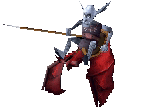Ironworks Moderator 
Join Date: March 1, 2001
Location: Scotland
Posts: 2,788
|
Here's some of the rules and regulations from a BBC creative writing site and their general rule about the type of language allowable.
NETIQUETTE
Netiquette is the term for a (highly subjective) list of suggestions to make online conversations more pleasant. Following these guidelines will not prevent heated debate, but it may avoid discussions which become personally upsetting.
General Principles:
Treat others as you'd like to be treated yourself. That means, treat them with tolerance, civility and respect.
Always try to give people the benefit of the doubt in ambiguous situations - they hardly ever intend to be unpleasant, and usually make it more obvious if they do.
Unless you're in a general conversation thread, try to stay on-topic.
Always try to make it clear who you're replying to, especially if there are intervening posts from other people on the conversation.
Always remember: unless it's an extreme case, a post is on the site permanently. Whatever you say now you will be accountable for later! Count to ten. Think carefully.
Don't try to write too much in one post - people are very unlikely to read everything in a long posting.
Show respect to other cultures and traditions, and their points of view. Yours are not necessarily any more 'right' than someone else's - just different.
Read as much of the conversation as possible. Try to read the last couple of days' backlog at least.
Make sure that the point you're about to raise hasn't already been covered, and don't open a thread about one subject if there's already one open.
Always preview your posting. This doesn't just help with getting smileys right, but allows you to check for silly typos, and poorly structured, easily misinterpreted sentences.
Never ever use all-capitals because it's commonly interpreted to mean that you're shouting LIKE THIS! IT LOOKS TERRIBLY RUDE, AND GIVES THE IMPRESSION THAT THE POSTER CANNOT EVEN CONTROL THEIR OWN CAPS LOCK KEY!
Abbreviations and acronyms are best left back in the world of instant messaging and mobile phones. This site is about creative writing after all!
Danger Phrases
Certain phrases, which can be perfectly innocent in the right tone of voice, can be easily misinterpreted in plain text. Smileys can sometimes get round this, but there are some phrases to avoid as they more often than not cause people to respond badly.
"It's obvious that..."
Is it? It implies that no one else's opinion is carefully considered, or in any way valid. Dangerous!
"In my opinion (IMO)"
Of course it is. Everything you say is your opinion. Redundant!
"You'd be really stupid to think..."
Someone will think it (how many thousands of people are reading your conversation that you don't know about?), and you've called them stupid. Dodgy!
"Lighten up"
How to throw fuel on the fire of someone's passionate beliefs. Patronising!
"You are (wrong/talking rubbish/arrogant/egotistical/etc.)"
Does it need an explanation? Argue with the ideas, not the person. Hostile!
What to Do in a Hostile Situation
Before making your point to the person you're arguing with, carefully read what they say and try to see their point of view - it always helps. They might actually have a point!
A situation may arise simply because someone misunderstood you. If someone has, don't shun them for it - be polite, apologise for being unclear and correct the misunderstanding.
If someone does go on about something incessantly, it's usually best to ignore them.
If someone has annoyed you, and has later apologised honestly, don't continue to shun them. Always keep an open mind on these matters - life's too short to bear grudges.
Think about whether there's any point in replying, even if you think you're right. If it looks as if the other person's mind is made up already, there's no point in trying to convince them - it'll just prolong a futile argument. Just 'walk away'.
Using Smileys
In online communication, a lot of important information can be missed - information of tone and connotation, normally expressed by body language, vocal and facial expression.
Smileys can be used to add emotion and intention to plain words (hence the term 'emoticon'), and they are invaluable for indicating the manner in which you're posting.
A smiley can lighten the tone. If you're being sarcastic, you might use an appropriate smiley, like . If you don't, the plain text might look harsh, and be misunderstood by the reader.
Try not to use too many smileys on one post. On Get Writing, our ambition is to improve our grasp of language as much as anything. Expressing your thoughts in carefully crafted words will impress far more community members.
Unlawful, harassing, defamatory, abusive, threatening, harmful, obscene, profane, sexually oriented, racially offensive, or otherwise objectionable material is not acceptable. You'll notice 'profane' in the list here. This means that hardcore swearing is not allowed on Get Writing, and if you do swear, Get Writing Moderator will **** out all except the first and last letters. Some swearing - such as quotes from poems or plays in reviews, for example - may be editorially acceptable, but in everyday communication, it is not. All the types of content above break these House Rules. Please don't post it, or you may find we close down your account if you keep breaking the rules.
__________________
Regards 
Mouse
(Occasional crooner and all round friendly Scottish rodent)
|